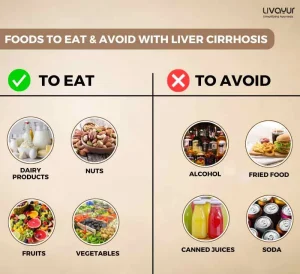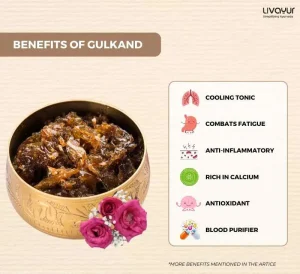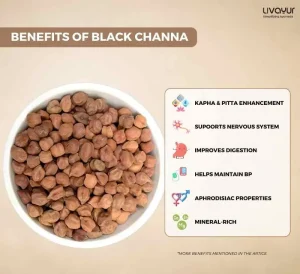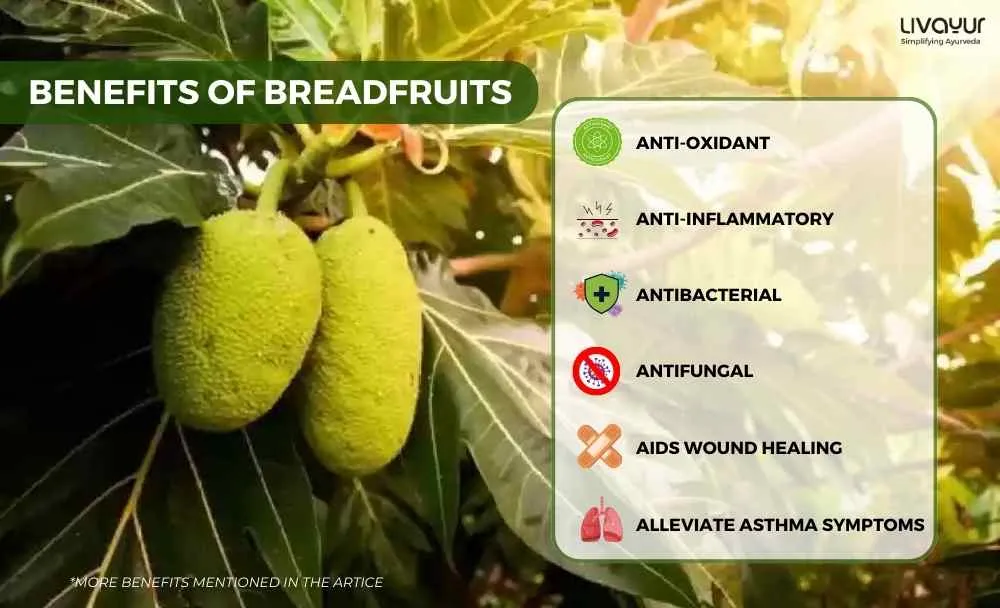
Breadfruit, known as “bedi del” in Ayurveda or “Artocarpus altilis” scientifically, has long been revered as a potent elixir of well-being. Celebrated for its multifaceted virtues, this tropical gem has quietly woven its way into the fabric of Ayurvedic tradition. It offers many health benefits that resonate with the mind and body.
This article explores the insights of Ayurveda and unveils the 12 incredible benefits of breadfruit for overall health. So, let’s look at how this humble yet magnificent fruit aligns harmoniously with the holistic principles of Ayurvedic wellness.
What is breadfruit?
Breadfruit is a tropical fruit native to regions like the Pacific Islands, Southeast Asia, and the Caribbean. It belongs to the Moraceae family and has a starchy, bread-like texture when cooked, from which it derives its name. The breadfruit tree is robust and verdant, often reaching heights of up to 85 feet, with large, glossy, and deeply lobed leaves.
The ripe fruit is green or yellow, possessing a prickly outer skin and a firm, cream-colored, or pale-yellow interior flesh. Rich in essential nutrients and carbohydrates, breadfruit has been a staple food source in various cultures for centuries, contributing to culinary traditions and its reputation as a valuable resource in traditional medicine systems like Ayurveda.
Its versatility, nutritional value, and adaptability to different culinary preparations have made breadfruit a noteworthy addition to global cuisine and a subject of interest in scientific research. [1]
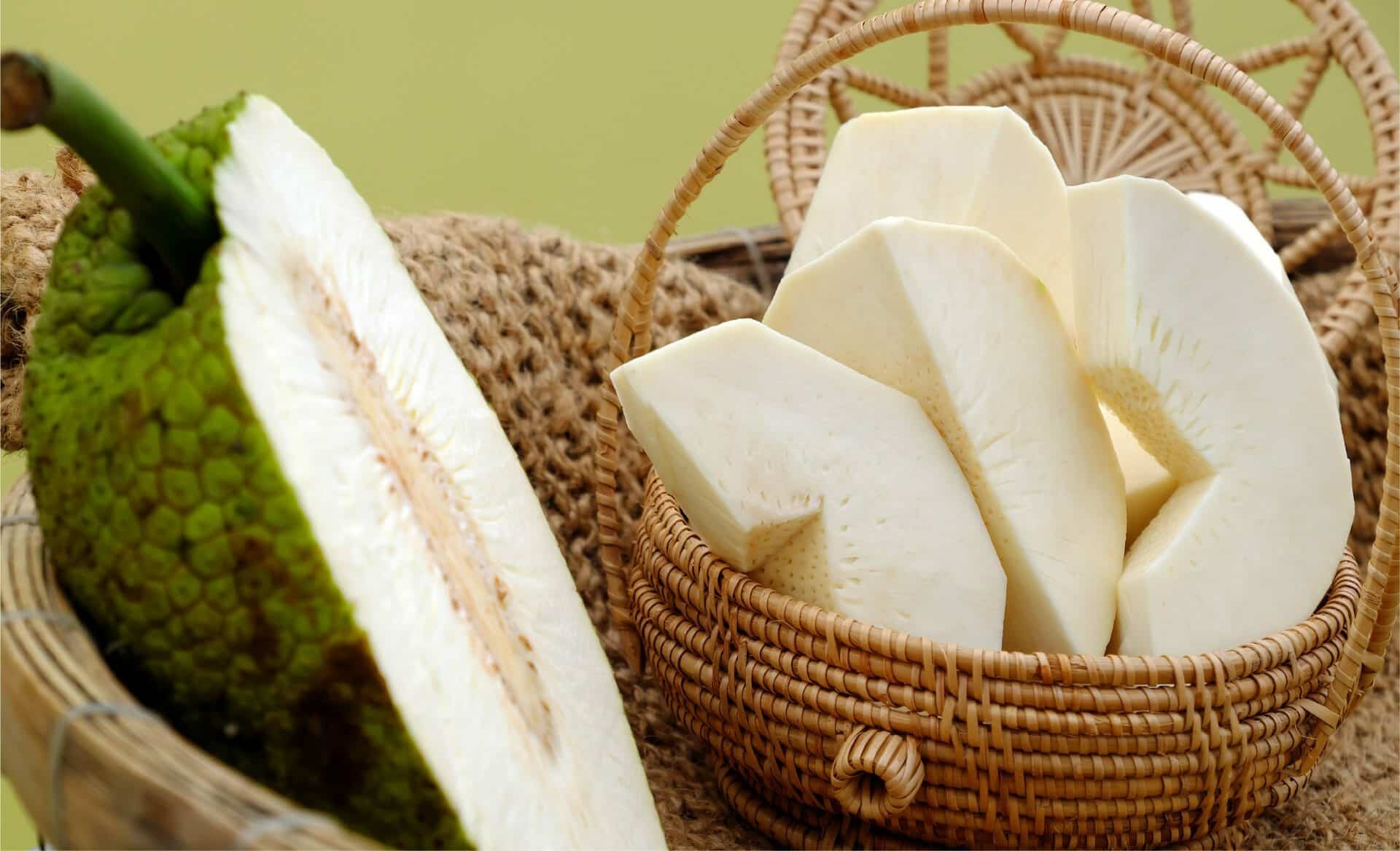
12 benefits of breadfruit for overall health
Here are 12 ways your health can benefit from breadfruit.
- Asthma treatment
In Ayurvedic tradition, breadfruit has been utilized as a natural remedy to alleviate asthma symptoms. This is because of its anti-inflammatory properties that help ease bronchial spasms and promote better respiratory health. [2]
- Diarrhea relief
Breadfruit possesses astringent qualities that can be particularly beneficial in managing diarrhea. Its tannin content can help reduce loose stools’ frequency and relieve gastrointestinal discomfort. [2]
- Worm infestations
Traditionally, breadfruit has been employed as a vermifuge, aiding in the expulsion of intestinal parasites. Its natural anthelmintic properties make it a valuable addition to anti-parasitic treatments. [2]
- Wound healing
The latex derived from breadfruit trees has demonstrated remarkable wound-healing properties. It helps boost the natural healing process of cuts, abrasions, and minor injuries. [2]
- Abscess treatment
Breadfruit addresses abscesses due to its antimicrobial attributes. It aids in reducing inflammation and hastening the drainage of pus, contributing to the resolution of abscess-related issues. [2]
- Soft tissue infections
The antibacterial activity of breadfruit in traditional medicine helps manage soft tissue infections, assisting in combating various bacterial pathogens. [2]
- Antibacterial activity
The antibacterial activity of breadfruit is due to its natural compounds, which have shown efficacy in inhibiting the growth of various bacterial pathogens. It is a valuable ally in promoting microbial balance within the body. [2]
- Anti-inflammatory activity
Breadfruit’s anti-inflammatory properties extend beyond respiratory health. They can alleviate inflammatory conditions throughout the body, making them a valuable ally in maintaining overall health. [2]
- Antioxidant richness
Breadfruit is replete with antioxidants, like flavonoids and polyphenols, crucial in neutralizing harmful free radicals in the body. It can help reduce oxidative stress and minimize the risk of chronic diseases. [2]
- Antifungal properties
Research has shown that breadfruit exhibits antifungal activity, which can be particularly valuable in addressing fungal infections and promoting skin health. [2]
- Biosorption of metal ions
Breadfruit can absorb and remove heavy metal ions from the body. It can aid in detoxification and protect against heavy metal toxicity. [2]
- Glutathione-S transferase inhibition
Breadfruit has demonstrated inhibitory activity against glutathione-S transferase, an enzyme associated with drug resistance in certain diseases, due to its flavonoid properties. This inhibition may enhance the efficacy of therapeutic interventions. [2]
How to consume breadfruit?
Incorporating breadfruit into your diet can be a delightful and nutritious experience. Here are some ways to enjoy the flavors and health benefits of breadfruit.
- Boiling
Boiling breadfruit is a straightforward method to prepare it. Peel the fruit, cut it into chunks or slices, and simmer until tender. You can enjoy boiled breadfruit as a side dish, mashed like potatoes, or added to soups and stews.
- Roasting
Roasting breadfruit over an open flame or in an oven imparts a smoky flavor and appealing texture. After roasting until the skin becomes charred and the flesh is tender, remove the skin and enjoy the roasted breadfruit as a standalone snack or in savory dishes.
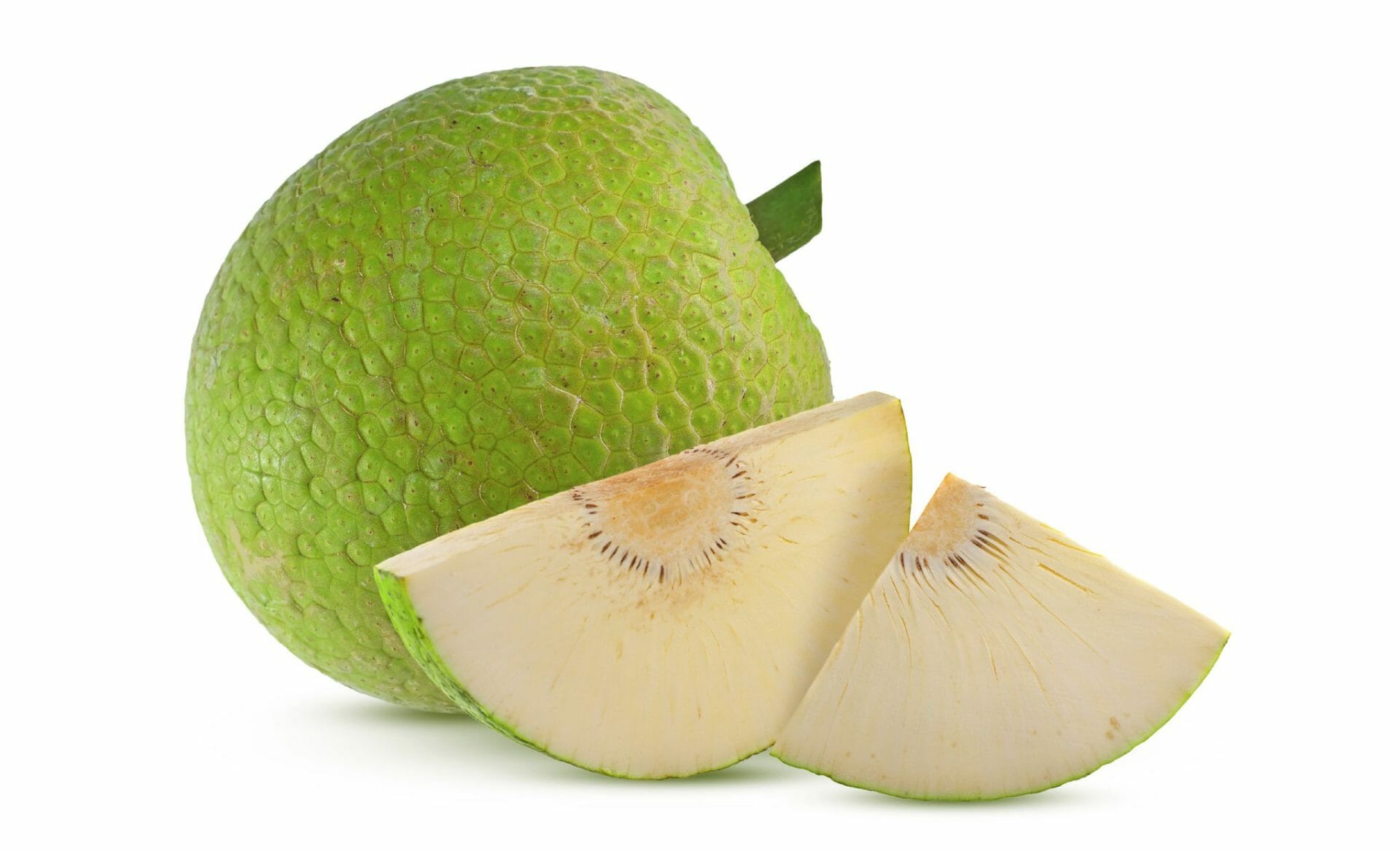
- Frying
Sliced or diced breadfruit can be deep-fried to create crispy, golden-brown chips—season with salt and spices for a delectable snack or side dish.
- Curries and stews
Breadfruit’s mild flavor and starchy texture make it an excellent addition to curries, stews, and stir-fry dishes. It absorbs the flavors and adds a unique twist to your favorite recipes.
- Baking
You can bake breadfruit in the oven, either whole or sliced, similar to how you might roast it. Baking allows you to experiment with various seasonings and stuffing options, making it a versatile choice for sweet and savory dishes.
- Desserts
Breadfruit’s natural sweetness lends itself well to desserts. For a tropical twist, try mashing or pureeing breadfruit and incorporating it into puddings, pies, cakes, and even ice creams.
- Smoothies
To create a creamy and tropical smoothie, blend ripe breadfruit with other fruits, yogurt, and honey for a nutritious and refreshing treat.
FAQs
1. What is a breadfruit tree?
The breadfruit tree (Artocarpus altilis) is a tropical tree known for producing large, starchy fruits that are staple in tropical regions. The tree’s leaves are large and deeply lobed, and it can grow quite tall, making it an essential source of food and shade in many tropical cultures. [1]
2. Can you recommend some breadfruit recipes?
You can prepare breadfruit in numerous delicious ways. Some popular breadfruit recipes include breadfruit curry, breadfruit chips (similar to potato chips), breadfruit salad, and breadfruit stew. You can roast, boil, mash, or use it in soups and desserts. The versatility of breadfruit lends itself well to both savory and sweet dishes.
3. Are breadfruit seeds edible?
The seeds of the breadfruit are technically edible. However, people do not commonly consume them due to their bland taste and the presence of compounds that may cause digestive discomfort. Most culinary preparations focus on the fleshy part of the fruit, while the seeds often get discarded.
4. What is the scientific name of breadfruit?
The scientific name of breadfruit is “Artocarpus altilis.” This tropical fruit belongs to the Moraceae family and closely relates to other members of the Artocarpus genus, like jackfruit (Artocarpus heterophyllus) and chempedak (Artocarpus integer). The scientific name helps classify and identify the plant species within the botanical taxonomy system. [1]
Conclusion
The many benefits of breadfruit for overall health present a compelling case for its inclusion in one’s dietary and wellness regimen. From its traditional role in alleviating asthma and diarrhea to its demonstrated antibacterial, anti-inflammatory, and antioxidant properties, breadfruit emerges as a valuable ally in maintaining holistic well-being.
To harness these benefits, consider incorporating breadfruit into your diet through various culinary methods, like boiling, roasting, or baking. Whether you savor it in savory dishes or relish its natural sweetness in desserts, breadfruit is a testament to the harmonious synergy between age-old wisdom and modern scientific validation.
Disclaimer
The information provided here does not intend to replace professional advice or treatment.
References














